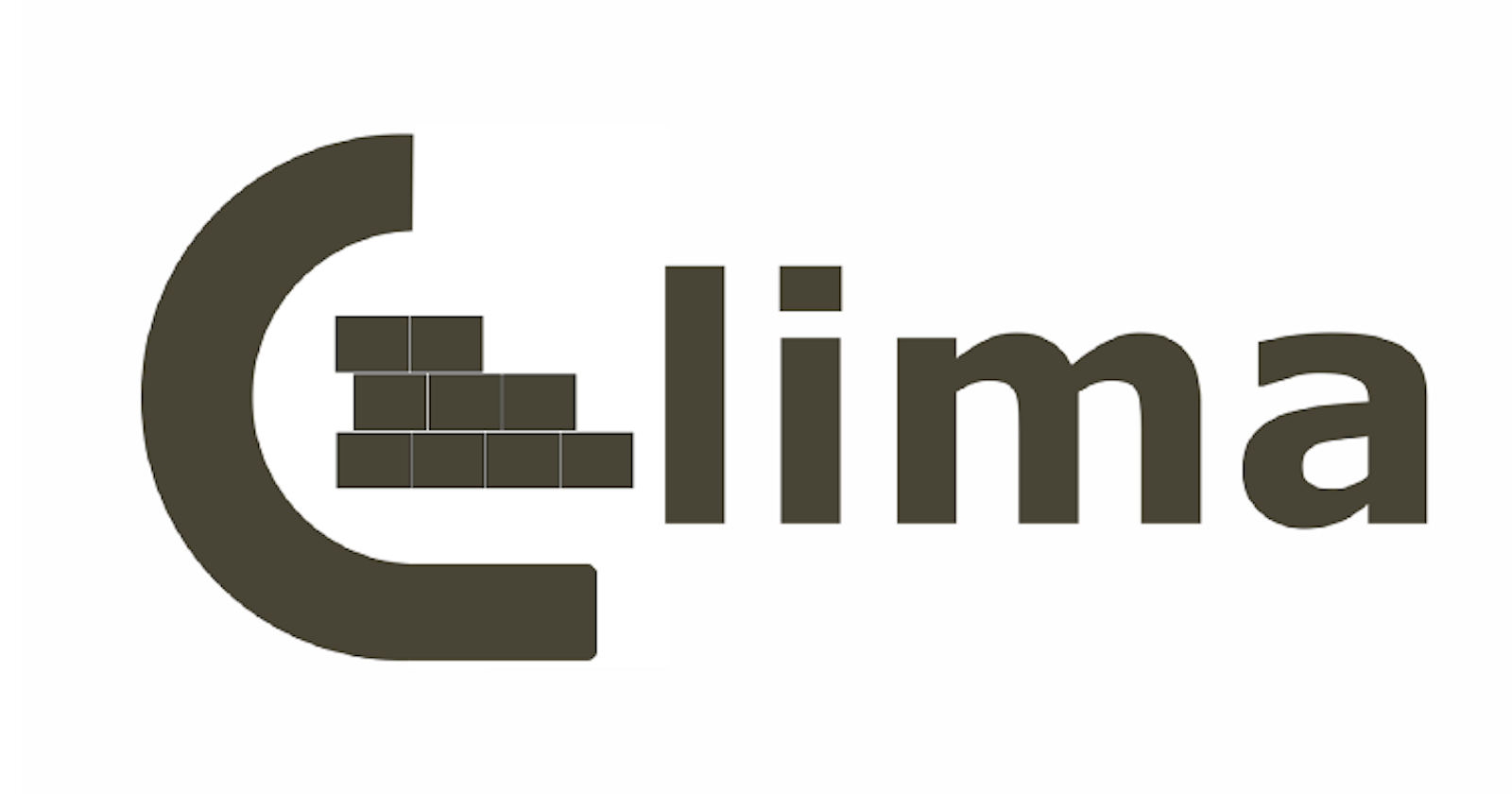What is Colima? 🤔
Colima is built on Lima, which generates a QEMU VM with an HVF accelerator and handles port forwarding and folder sharing. Lima has containerd and nerdctl, but a Docker container runtime is necessary for a drop-in replacement, which is what Colima is for.
Colima installs the Docker container runtime in a Lima virtual machine, configures the Docker CLI on macOS, and handles port forwarding and volume mounts. Docker, like Docker Desktop, is now simply accessible on macOS without any settings.
It’s a command line program that builds on top of lima to give a more convenient and full Docker Desktop alternative, and it already shows a lot of potential. Getting started with Colima is very simple as long as you already have brew and Xcode command line tools installed.
GitHub Repository link 🔐
Intro GIF 📌

Installation and Setup ⚙️
Installation is easy and can be done through Homebrew:
brew install colima
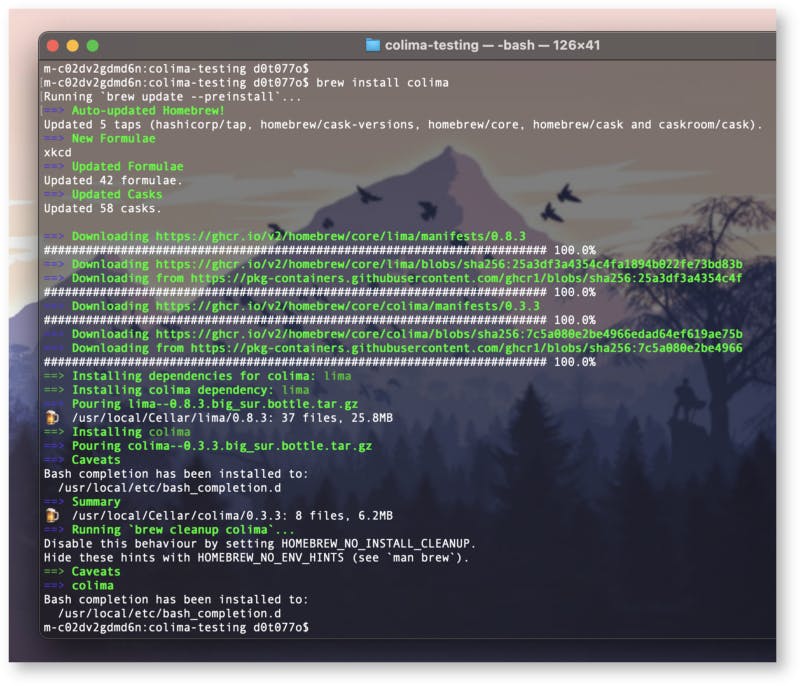
To start the VM we run:
colima start
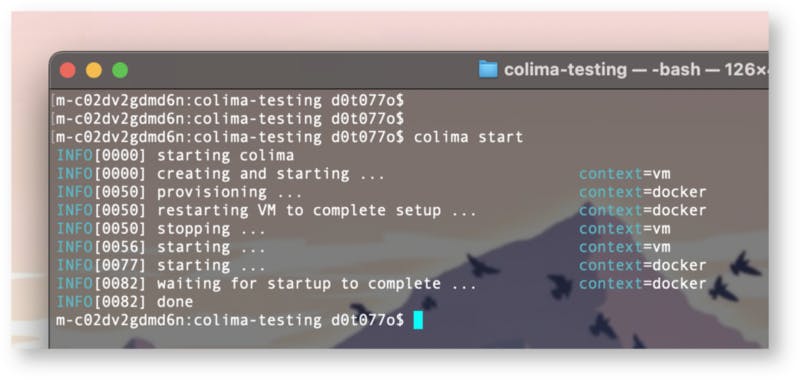
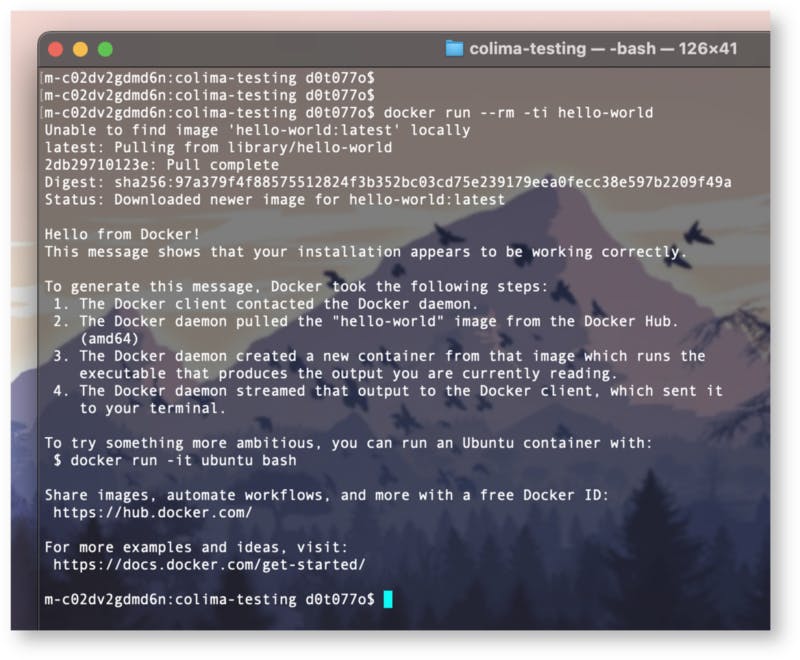
It will start the docker daemon in the VM and configure the docker CLI on the host. The usage in macOS is no different from Docker Desktop, and all docker commands should work as before.
Features 💯
Intel and M1 Macs support
Simple CLI interface
Docker and Containerd support
Port Forwarding
Volume mounts
Kubernetes
Changing VM size 🛐
The default VM may be on a tiny side, especially if you opt to run Kubernetes as well.
To give your VM greater resources, use
colima stop
followed by
colima start — cpu 6 — memory 6.
This will provide your Colima VM 6 CPU cores and 6GB of RAM. You can get a full list of options by simply running colima and pressing enter.
More about that here : https://github.com/abiosoft/colima#customizing-the-vm
Kubernetes ☸️
kubectl is required for Kubernetes. Installable with
brew install kubectl
To enable Kubernetes, start Colima with --with-kubernetes flag.
colima start --with-kubernetes
More Usage options 📜
colima --help
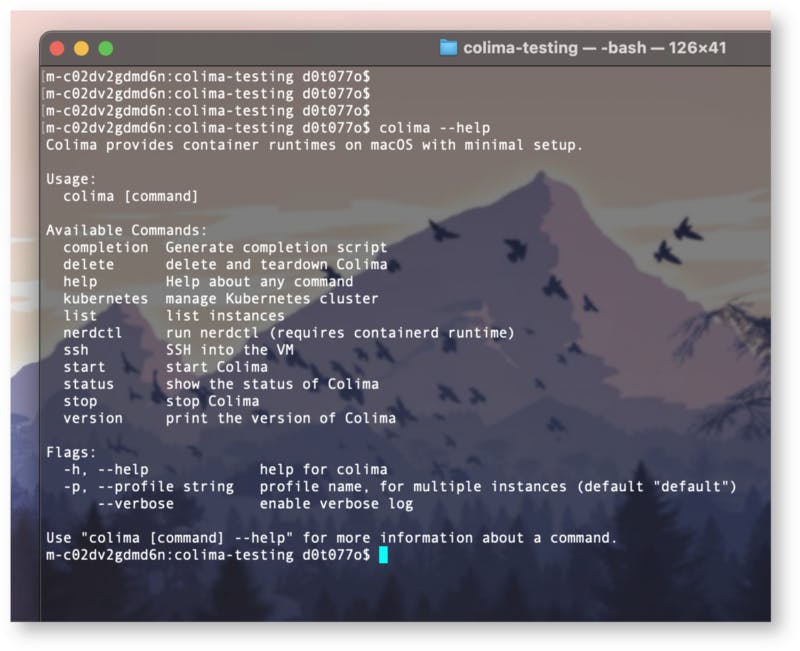
Conclusion 💁🏻♂️
When I ran docker containers, I didn’t detect any difference, and all docker commands functioned as before, which is excellent because none of my build scripts had to be altered.
This is a fairly young initiative with a lot of potential. A lot is happening, and the option to construct alternative Colima VMs that operate on different architectures is now in the code base. You may, for example, run arm64 Docker images on your amd64-based Mac or vice versa.
Colima is a young but promising project that can easily replace Docker Desktop, and if you are a Docker user, I highly recommend giving it a try and offering input if you so choose. It is capable of running Docker containers, docker-compose-based programs, Kubernetes, and building images.
Please share your opinions about Podman and this topic in the comments section.
Connect with Me on Social Media
🐦 Follow me on Twitter: devangtomar7
🔗 Connect with me on LinkedIn: devangtomar
📷 Check out my Instagram: be_ayushmann
Ⓜ️ Checkout my blogs on Medium: Devang Tomar
#️⃣ Checkout my blogs on Hashnode: devangtomar
🧑💻 Checkout my blogs on Dev.to: devangtomar

